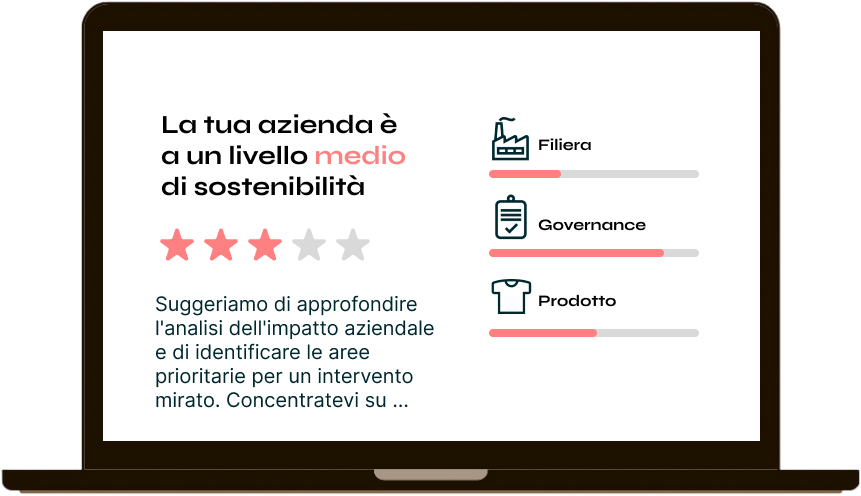Interview with Artknit Studios: Durability, Digital and Short Supply Chain
For Artknit Studios it all started in Biella, the wool capital. The knitwear brand was born with a strong focus on quality and sustainability. The company was founded in 2018 with the goal of leveraging digital and higher quality materials to create fewer but stronger products at the best cost: for producers, the planet, and customers.
Their motto is "buy less, buy better."
We spoke with Alessandro Lovisetto, who founded the company with the aim of exploiting technologies and enhancing themes he holds dear, such as Made in Italy. In this way, a 100% digital brand was born with the goal of connecting Italian spinning mills, artisans, and manufacturers directly to the end customer.
Alessandro, tells us about the strategic nature of the production methodology adopted by Artknit defined as "Made-to-order," which consists of the technique of production to order: on the one hand it has served the company to get to know the laboratories that have been willing to espouse the project, and on the other it has been a useful model for self-financing by demonstrating sustainability not only on an environmental and social level, but also on a financial level. In fact, this type of practice allows zero waste production, due to the fact that production is started only from the moment the order is processed.
It is not only the management of the warehouse stock that is more efficient; thanks to a second technique used by the company, that of "Ready to ship," small orders can be placed, allowing the shipping service to be improved as well, making it significantly faster.
The Made-to-Order methodology, according to Alexander, is a real competitive advantage for the company, without which it would be easier to incur several production inefficiencies.
The direct, day-to-day relationship with its manufactures has enabled the brand to organize itself and overcome even the current Lockdown crisis period with greater ease. Indeed, the business model, without intermediaries and characterized by a short supply chain, has allowed it to act more responsively and efficiently.
Logistics management and the short supply chain (involving no middlemen) is one of several pillars of brand sustainability. Among others, there is also the involvement of the social side: the artisanal fabric in fact employs dozens of working families who have espoused this type of project.
The durability of the garment is one of the neuralgic aspects among the sustainability practices adopted by the company. If, in fact, during the pandemic, the importance of slowing down collections and producing garments based more on quality than seasonality was a discovery for several brands, for Artknit it was a simple confirmation of a production strategy now intrinsic in its DNA and present since the brand's origin.
Giorgio Armani himself, Alessandro tells us, confirmed the importance of appearance, crystallizing this important concept within the entire fashion industry.
Dialogue with consumers becomes fundamental for a company that makes a pillar of its sustainability the durability of the garment.
Inside the product packaging, a flyer is included that explains to the consumer how to take care of their garment in order to prolong its use life as much as possible. In addition, a small organic cotton bag is delivered, which is useful for storing the garment longer and communicating other important information to the buyer, such as garment handling and washing.
Under development, on the other hand, is the application of a QR Code that allows the customer even more in-depth information and, therefore, to know the history of the purchased garment and its raw materials.
The communication made on Artknit's website develops into a real storytelling in which the actors of the supply chain itself take an active part, who are interviewed in order to create a direct relationship with the final consumer and give an impression of transparency and authenticity.
The ultimate goal is to explain in a simple and understandable way to the customer what is involved in choosing a product over one without the same sustainability features.
Artknit's future plans, as a self-respecting startup, are many. Among the most important, Alessandro tells us, is to become a B-corp and join the Blockchain system to have complete supply chain tracking: from raw material to garment spinning to artisan manufacturing.
Conclusions
Some really interesting insights emerged during the chat we had with Alexander. Once again, it was shown how sustainability is a tool to gain a competitive advantage in the market. While implementing sustainability practices makes sense for many companies in order to accommodate the growing market demand for, for example, durable, quality and less impactful garments, this is not the only benefit found.
The reduction in unsold inventory due to made-to-order practices, the high degree of responsiveness in unforeseen situations (such as, for example, during a pandemic) due to the short supply chain, are all aspects that describe sustainability practices not only as an adaptation to company principles and values, but as real strategies that make production more cost and time efficient.
Get articles like this and the latest updates on sustainable fashion automatically!
